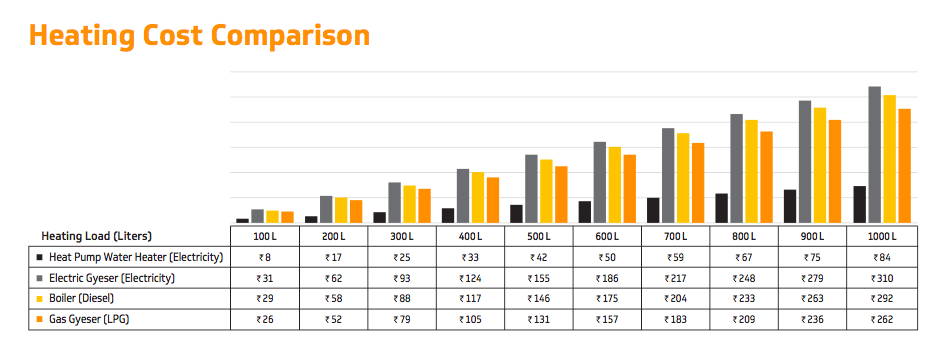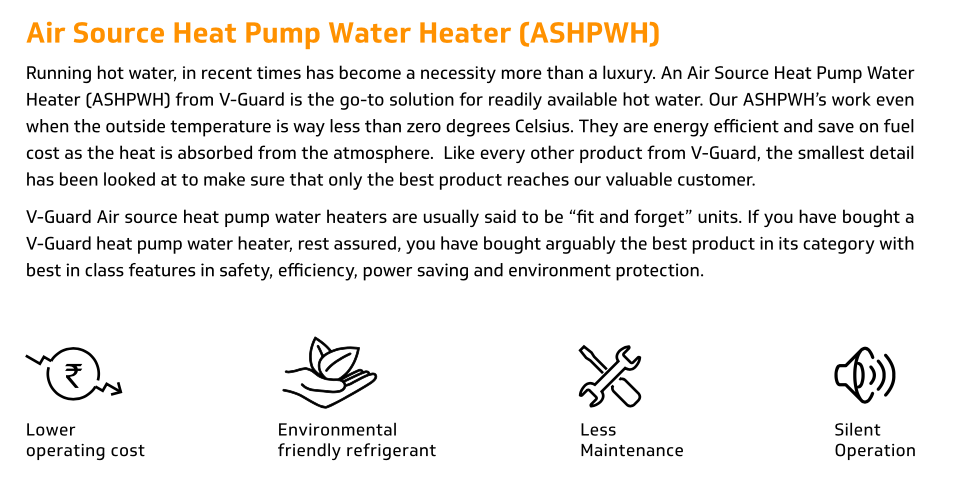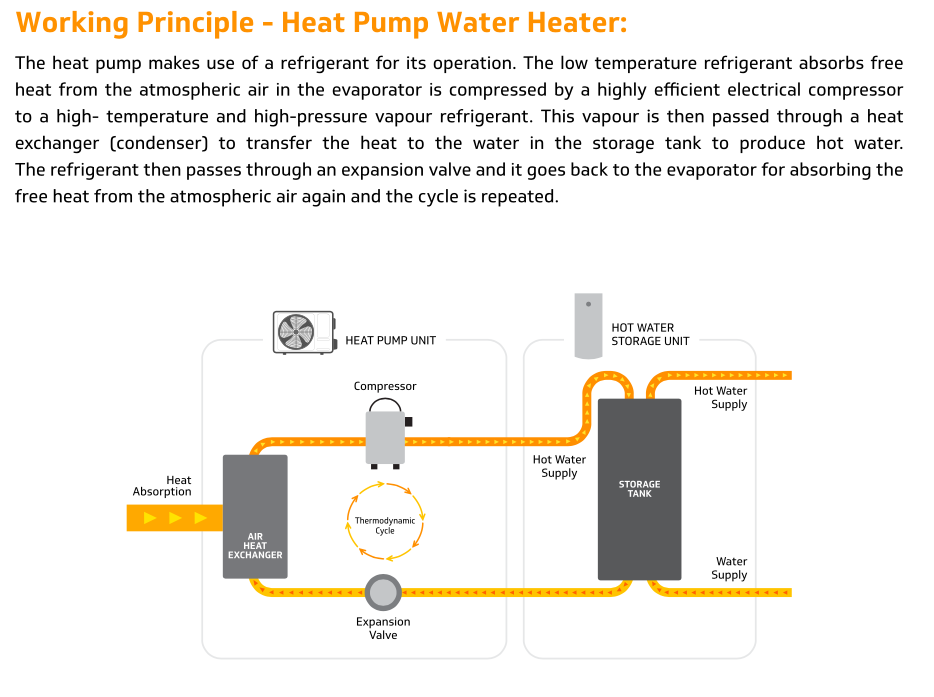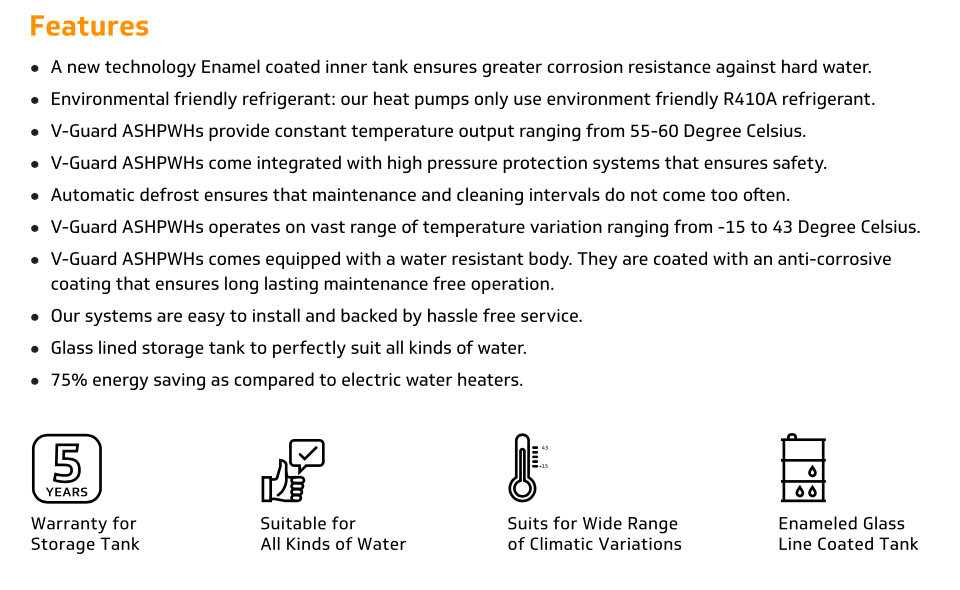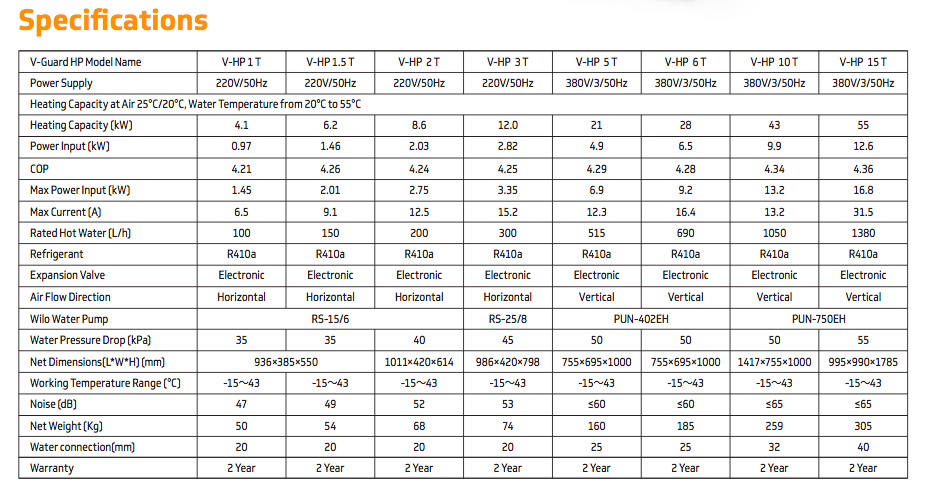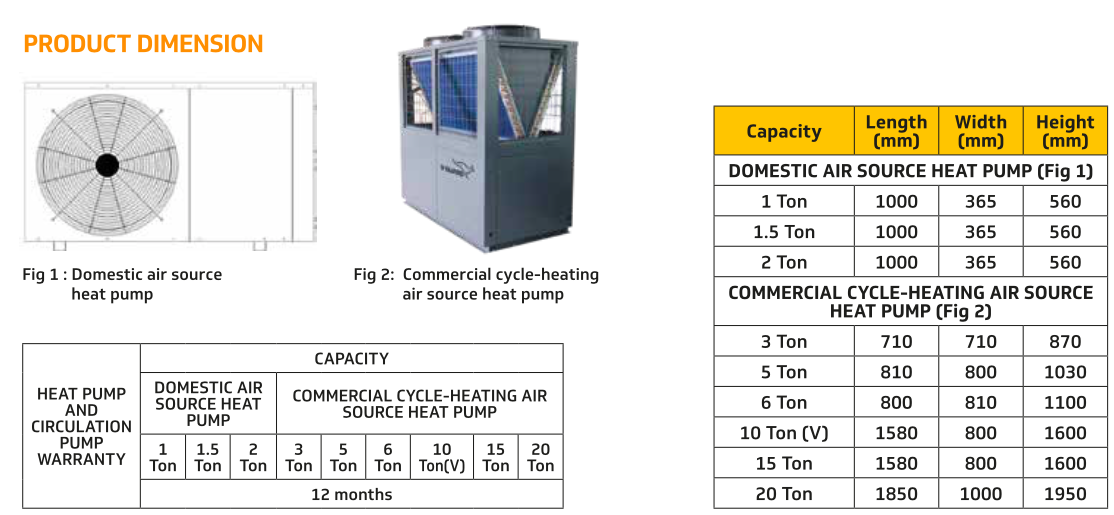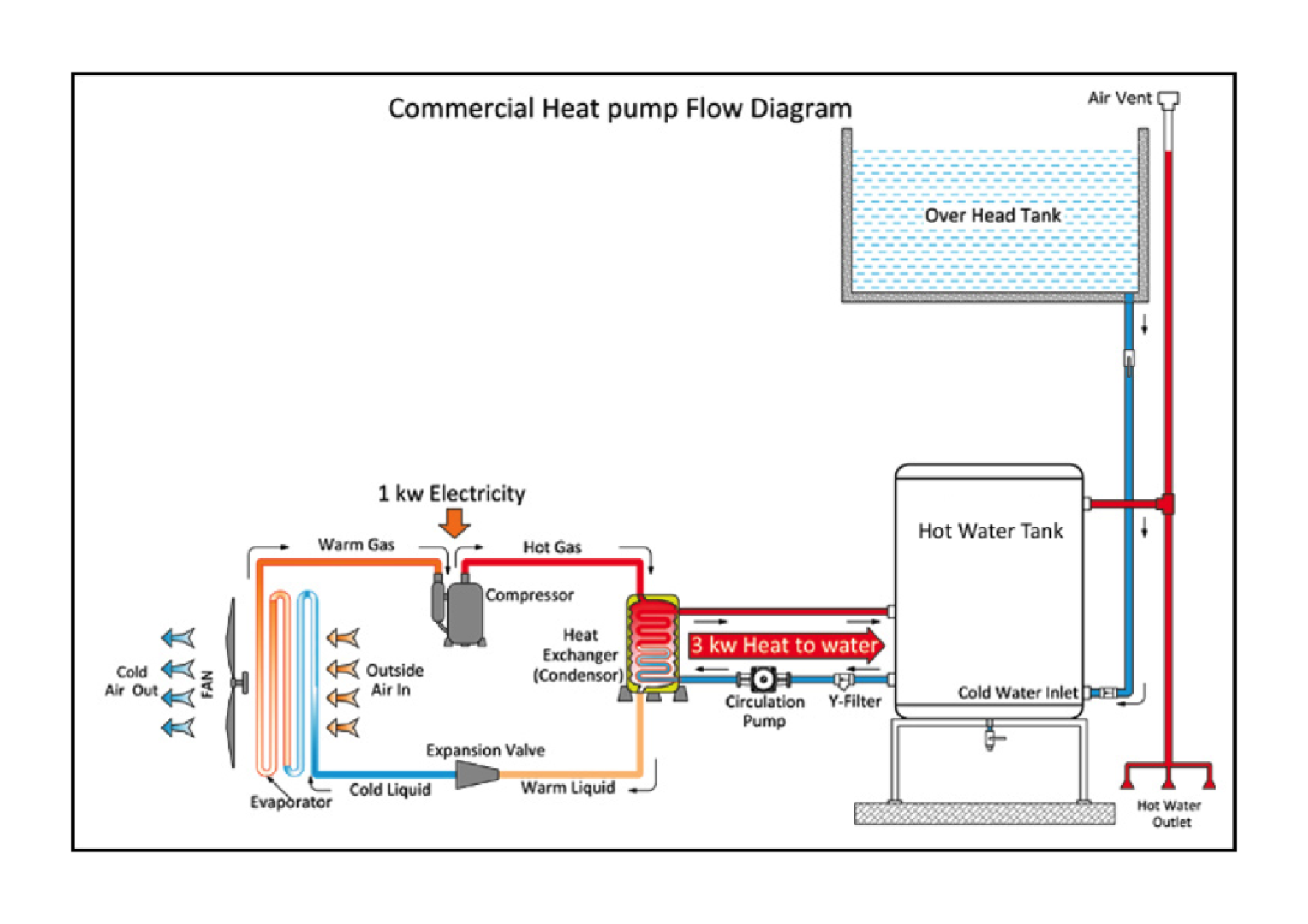Heat Pump

A heat pump is a device that transfers heat energy from a source of heat to what is called a thermal reservoir. Heat pumps move thermal energy in the opposite direction of spontaneous heat transfer, by absorbing heat from a cold space and releasing it to a warmer one. A heat pump uses external power to accomplish the work of transferring energy from the heat source to the heat sink. [1] The most common design of a heat pump involves four main components – a condenser, an expansion valve, an evaporator and a compressor. The heat transfer medium circulated through these components is called refrigerant.
While air conditioners and freezers are familiar examples of heat pumps, the term & heat pump & is more general and applies to many heating, ventilating, and air conditioning (HVAC) devices used for space heating or space cooling. Heat pumps usually can be used either in heating mode or cooling mode, as required by the user. When a heat pump is used for heating, it employs the same basic refrigeration-typ cycle used by an air conditioner or a refrigerator, but in the opposite direction – releasing heat into the conditioned space rather than the surrounding environment. In this use, heat pumps generally draw heat from the cooler external air or from the ground.
Heat pumps are also increasingly used to heat domestic hot water, the hot water used for kitchens, bathrooms, clothes washers, etc. Heat pumps are significantly more energy efficient than simple electrical resistance heaters. This efficiency however begins to decrease as the outside temperature decreases, making them more efficient in hotter climates than cooler ones. The typical installation cost is also higher than that of a resistance heater.
Benefits of Heat Pump
- Very Low Electrical
- Consumption 24 x 7 availability of hot water with fixed temperature.
- 400% higher efficiency
- Compact in shape
- 1/10 of power consumption compared to any other electric geyser.
- Low maintenance
Working Principle Of Heat Pump
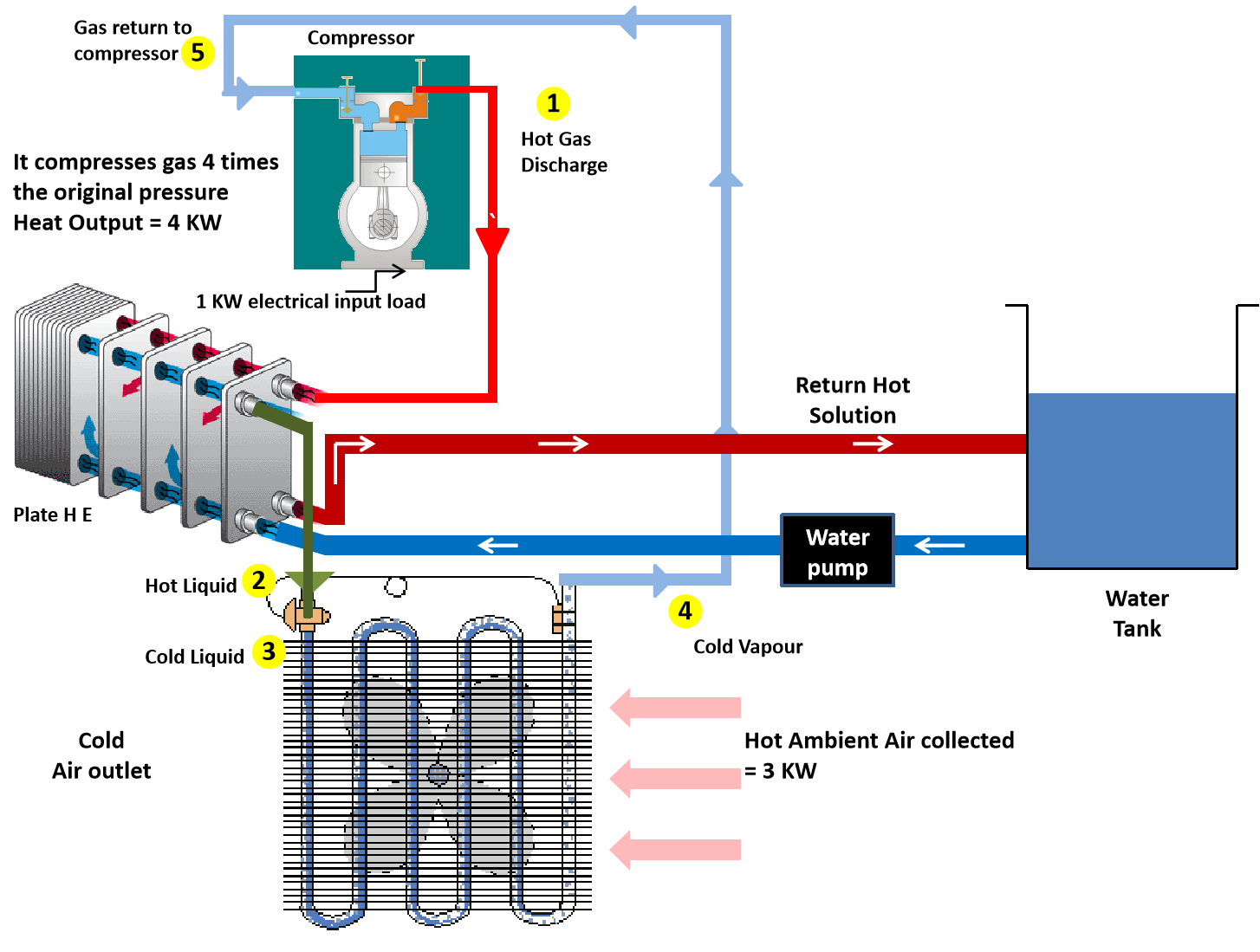
Brands Available

